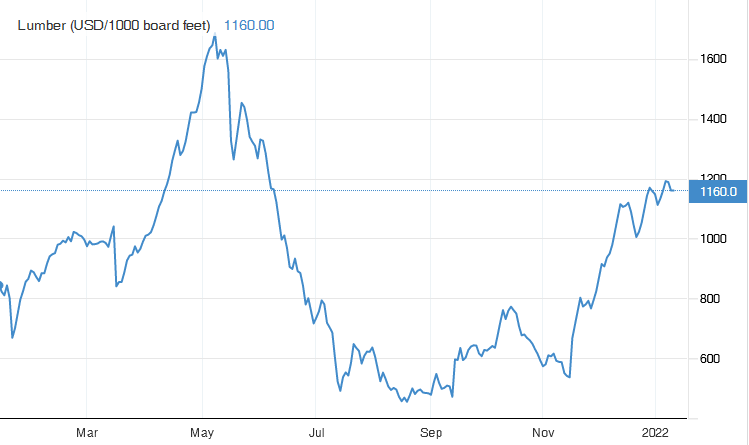
Here's a list of the best utility stocks, which you can now buy. We've chosen the top three based on their financial records, dividends, diversification, and other factors. Now you can start looking for utilities. Read on for more tips. These tips will help you choose the best utility stocks.
Diversified utilities
Diversified Utilities is a sector that includes companies that distribute various resources such as water, electricity, and oil. Diversified Utilities may offer diversification, as many other companies only specialize in one type. They may have the ability to make money with one offering and suffer losses from other offerings. This could be one of their strengths. This article will examine the many utilities these companies offer, and explain why they're great to have a diverse portfolio.

Utility sectors are known for being defensive and can often retain their value more than other segments in volatile stock markets. Additionally, their business models often feature limited competition, making them a good choice for balancing risk in a high-risk portfolio. Investors who are looking for consistent dividends have been able to enjoy a high level of volatility in utilities stocks, which has historically outperformed the market. The S&P 500 Utilities Sector has returned just 16.3% in 2021. Despite this performance, utilities have been able to weather market conditions which can cause stocks to outperform the market. Two factors that have put pressure upon utilities are rising inflation and fears of higher interest rate increases. As a result, the S&P 500 has underperformed the utilities sector.
High dividends
If you're looking for a reliable source of income, consider investing in utility stocks. Utility stocks are not only risky but also pay large dividends. These stocks have a long history of steady income. Investopedia has a guide to utility dividends that includes a chart which shows the current payouts for each of these utilities as well as a breakdown of their earnings. Dividends aren't everything. Utility companies can be a better option than others that pay a higher dividend.
The industry of utilities has a huge market and is growing steadily. Companies in the utilities industry offer strong dividends, compelling growth, and are generally safe investments. However, every investment comes with risk. There are many stocks out there, and not all stocks are created equally. It is important to research before you invest. Investors will be able to create more wealth and have greater financial stability if they make informed investments. Here are some of the top utility stocks that provide high dividends. These are five of the best utilities stocks to invest in if you are just starting out.
Strong financial profiles
Utility stocks' strong financial profiles make them a great defensive investment. Their high yields, low valuations, and long track record of dividends make them a solid choice for income-seeking investors. While their share prices have suffered as the stock market has struggled to recover from the 2008-2009 global financial crisis, utilities remain a solid choice despite the negative headlines. Public regulated utilities fund their operations by raising capital to build power plants and establish operations. Customers also contribute revenue which helps them keep their costs down.

While utilities have historically paid higher dividends that most companies, they still have a lower payout percentage than their peers. Utility earnings have typically paid out 65% to 65%. This is a positive sign, as it means utilities have more cash to invest into expansion projects and dividends. This means utilities can increase their payouts and not increase their debt. They also won't have to issue new shares or decrease existing investors profits. Utility stocks offer a great opportunity for investors who want long-term growth and dividends.
FAQ
What is a Stock Exchange?
A stock exchange is where companies go to sell shares of their company. This allows investors to buy into the company. The market sets the price of the share. It is often determined by how much people are willing pay for the company.
Companies can also get money from investors via the stock exchange. Investors give money to help companies grow. They do this by buying shares in the company. Companies use their money as capital to expand and fund their businesses.
There can be many types of shares on a stock market. Others are known as ordinary shares. These are the most popular type of shares. Ordinary shares can be traded on the open markets. Shares are traded at prices determined by supply and demand.
There are also preferred shares and debt securities. When dividends are paid, preferred shares have priority over all other shares. A company issue bonds called debt securities, which must be repaid.
How does inflation affect stock markets?
Inflation can affect the stock market because investors have to pay more dollars each year for goods or services. As prices rise, stocks fall. Stocks fall as a result.
What is a Mutual Fund?
Mutual funds are pools that hold money and invest in securities. Mutual funds provide diversification, so all types of investments can be represented in the pool. This reduces risk.
Mutual funds are managed by professional managers who look after the fund's investment decisions. Some funds permit investors to manage the portfolios they own.
Mutual funds are often preferred over individual stocks as they are easier to comprehend and less risky.
Can you trade on the stock-market?
The answer is yes. However, not everyone is equal in this world. Some people are more skilled and knowledgeable than others. They should be rewarded for what they do.
But other factors determine whether someone succeeds or fails in trading stocks. If you don’t know the basics of financial reporting, you will not be able to make decisions based on them.
So you need to learn how to read these reports. It is important to understand the meaning of each number. It is important to be able correctly interpret numbers.
You'll see patterns and trends in your data if you do this. This will enable you to make informed decisions about when to purchase and sell shares.
And if you're lucky enough, you might become rich from doing this.
How does the stock markets work?
Shares of stock are a way to acquire ownership rights. The shareholder has certain rights. He/she may vote on major policies or resolutions. The company can be sued for damages. He/she also has the right to sue the company for breaching a contract.
A company cannot issue more shares that its total assets minus liabilities. This is called capital adequacy.
Companies with high capital adequacy rates are considered safe. Low ratios make it risky to invest in.
What is a bond?
A bond agreement is an agreement between two or more parties in which money is exchanged for goods and/or services. It is also known as a contract.
A bond is typically written on paper, signed by both parties. This document contains information such as date, amount owed and interest rate.
The bond is used when risks are involved, such as if a business fails or someone breaks a promise.
Bonds can often be combined with other loans such as mortgages. This means the borrower must repay the loan as well as any interest.
Bonds can also raise money to finance large projects like the building of bridges and roads or hospitals.
A bond becomes due upon maturity. This means that the bond owner gets the principal amount plus any interest.
Lenders lose their money if a bond is not paid back.
What are the advantages of owning stocks
Stocks are less volatile than bonds. The value of shares that are bankrupted will plummet dramatically.
But, shares will increase if the company grows.
Companies usually issue new shares to raise capital. This allows investors to buy more shares in the company.
Companies use debt finance to borrow money. This allows them to borrow money cheaply, which allows them more growth.
Good products are more popular than bad ones. Stock prices rise with increased demand.
As long as the company continues to produce products that people want, then the stock price should continue to increase.
Statistics
- Ratchet down that 10% if you don't yet have a healthy emergency fund and 10% to 15% of your income funneled into a retirement savings account. (nerdwallet.com)
- Our focus on Main Street investors reflects the fact that American households own $38 trillion worth of equities, more than 59 percent of the U.S. equity market either directly or indirectly through mutual funds, retirement accounts, and other investments. (sec.gov)
- US resident who opens a new IBKR Pro individual or joint account receives a 0.25% rate reduction on margin loans. (nerdwallet.com)
- For instance, an individual or entity that owns 100,000 shares of a company with one million outstanding shares would have a 10% ownership stake. (investopedia.com)
External Links
How To
How to invest in the stock market online
You can make money by investing in stocks. There are many ways you can invest in stock markets, including mutual funds and exchange-traded fonds (ETFs), as well as hedge funds. Your investment strategy will depend on your financial goals, risk tolerance, investment style, knowledge of the market, and overall market knowledge.
You must first understand the workings of the stock market to be successful. Understanding the market and its potential rewards is essential. Once you know what you want out of your investment portfolio, then you can start looking at which type of investment would work best for you.
There are three main types: fixed income, equity, or alternatives. Equity refers to ownership shares of companies. Fixed income refers to debt instruments such as bonds and treasury notes. Alternatives are commodities, real estate, private capital, and venture capital. Each category has its own pros and cons, so it's up to you to decide which one is right for you.
Two broad strategies are available once you've decided on the type of investment that you want. One strategy is "buy & hold". You purchase some of the security, but you don’t sell it until you die. Diversification, on the other hand, involves diversifying your portfolio by buying securities of different classes. By buying 10% of Apple, Microsoft, or General Motors you could diversify into different industries. The best way to get exposure to all sectors of an economy is by purchasing multiple investments. This helps you to avoid losses in one industry because you still have something in another.
Risk management is another important factor in choosing an investment. Risk management can help you control volatility in your portfolio. You could choose a low risk fund if you're willing to take on only 1% of the risk. If you are willing and able to accept a 5%-risk, you can choose a more risky fund.
Learning how to manage your money is the final step towards becoming a successful investor. The final step in becoming a successful investor is to learn how to manage your money. Your short-term, medium-term, and long-term goals should all be covered in a good plan. You must stick to your plan. Don't get distracted by day-to-day fluctuations in the market. Stay true to your plan, and your wealth will grow.